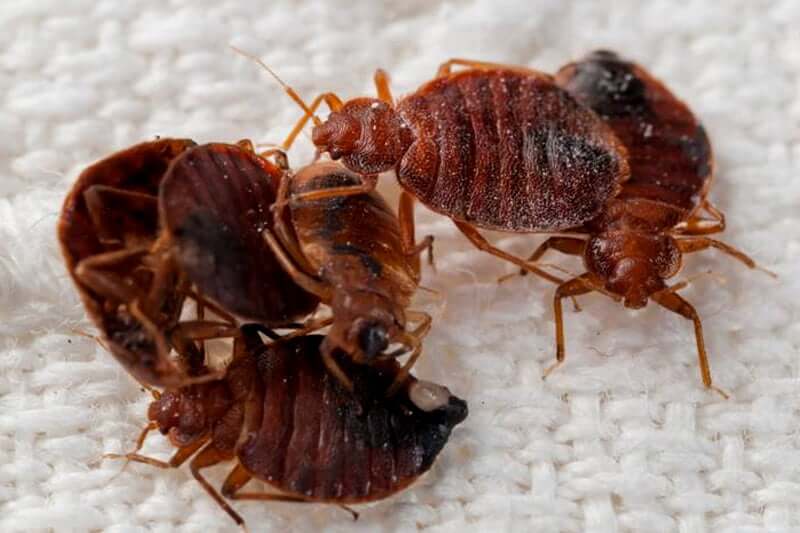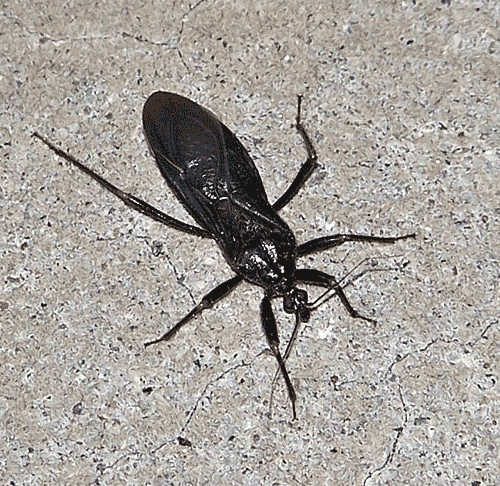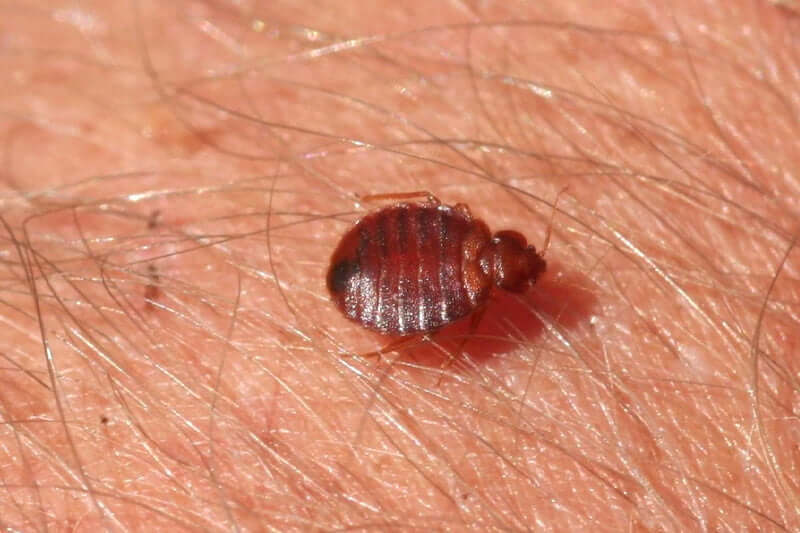Bed bugs are blood-sucking monsters that will rob you of sleep and peace of mind. Unfortunately, most chemicals typically used to get rid of them are toxic. And so, exploring natural methods of killing them is understandable. But do they have any natural enemies?
Yes, bed bugs have natural enemies. Fire ants, centipedes, spiders, cockroaches, argentine ants, geckos, and masked hunters are just a few of the most common bed bug predators.
Here is what you should know.

Bed bugs have a lot of natural enemies. Here are the most notorious.
Cockroaches
While cockroaches primarily stay in kitchens and other areas that have a ready supply of foodstuffs, they occasionally cross paths with bed bugs. And when they do, cockroaches often make a meal out of them.
However, using them to eliminate bed bugs is impractical because bed bugs are not their primary food source. Furthermore, they themselves are a nuisance that most homeowners hate. And there is also the fact that they can easily spread germs and diseases.
Therefore, while they can feed on bed bugs, counting on them is not a good idea.
Geckos
Geckos have an advantage when it comes to hunting bed bugs.
- They sort of roam in the same area — inside the house, including the bedroom.
- They also tend to be active at night. This increases the odds of them coming across bed bugs. And it is thus something that gives them an advantage when it comes to eliminating bed bugs.
Unfortunately, they can’t follow bed bugs into their hiding places because they can’t fit into small cracks and seams. As a result, they tend to only eat bed bugs that have come out of their hiding.
There is also the fact that they don’t feed on bed bugs exclusively. And that bed bugs are not big enough to justify being their primary food source. As a result, they are really ineffective at controlling bed bug populations.
Plus it will be really weird to have a bunch of geckos roaming around your home in the name of pest control.
Pharaoh ants
As far as reproduction is concerned, these are one of the few bed bug predators that can match bed bugs. Their females lay approximately 400 eggs, which means that there will always be enough of them once they set up camp in your home.
The only problem is that their population can get out of hand. Also, while they can eat bed bugs, they also eat almost anything else. This mixed diet makes them ill-suited to seeking and destroying bed bugs because they always have alternatives.
And when you also consider the fact that they can transmit diseases, using them as part of a bed bug control strategy becomes a really bad idea.
Masked hunters
The masked hunter is a predator that loves to feed on bedbugs. These bugs that thrive in warm areas can be used against bed bugs. The only problem is that they themselves can be dangerous.
They can spread diseases to human beings. They bite human beings. And since they don’t feed exclusively on bed bugs, investing your time and effort in them is usually not worth it.

Spiders
Spiders can also hunt, kill and then eat bed bugs. However, not every spider can hunt and kill bed bugs. Those that:
- Primarily live around the house
- Are big enough to kill and then eat bed bugs
Spiders that fit this criterion include: running crab spiders, jumping spiders, yellow sac spiders, and wolf spiders.
Can you use natural predators to get rid of bed bugs?
No, natural predators cannot be used to effectively control bed bug populations.
While it is true that these predators feed on bed bugs, using them presents a number of challenges that essentially rule them out. Here are the most common ones.

They are equally disgusting or as much of a nuisance
The creatures that naturally feed on bed bugs may not be on a mission to suck your blood, but they are no less disgusting.
Having large populations of cockroaches, centipedes, lizards, or any other predators won’t make your home safe. In fact, in some cases, it can make it unsafe. This is especially so when you consider the fact that some of them spread diseases.
They can't keep up
While most predators can feast on bed bugs, the rate at which they feed on them is not high enough to affect the population of bed bugs in a home. This is so especially when you consider the number of eggs that a female bed bug can lay in its lifetime.
They simply don’t feed on enough bed bugs for them to be relied on to completely get rid of bed bugs.
They bite human beings
Most natural bed bug enemies are also hostile to human beings. They can sting or bite. They can also trigger anaphylactic shock. And so in some cases, bed bugs can be considered to be way friendlier.
They don't inhabit the same spaces as bed bugs
Ladybugs feed on most insects, and bed bugs are no different. Unfortunately, ladybugs don’t primarily stay in bedrooms — where bed bugs love.
The same applies to cockroaches. Cockroaches love to stay in the kitchen and other areas where they can get easy access to food remains. These are not spaces that bed bugs typically inhabit.
And so the likelihood of some predators crossing paths with bed bugs is not always given. This makes it harder for them to kill bugs at a reliable rate.
They are too big
Lizards like geckos enjoy bed bug meals from time to time. Unfortunately, these predators are so big that expecting them to rely on bed bugs as a primary food source will be unrealistic.
Furthermore, they can’t effectively hunt bed bugs since they can’t follow bed bugs through cracks and crevices. They have to wait for them to get out of their hiding spots before they can eat the bed bugs.
Bed bugs aren't at the top of their wish lists
Most of these predators eat bed bugs as a luxury. If they come across bed bugs, they eat them. But they are rarely on a seek-and-eat mission. This makes them incredibly ineffective at getting rid of bed bugs.
Use this free service to find a bed bug removal expert near you
If you need professional pest control services, GoTreeQuotes.com offers a free service that quickly matches you with the top-voted local pest control experts in your area.
You can get 3 estimates fast by real certified experts in your area in just 2 minutes. Here is how it works.
- You scroll to the top of the page and enter your Zip code.
- Answer questions about your bed bug problem
- Your details will be forwarded to three local experts.
- You will then receive a price estimate for the job and some friendly advice.
IMPORTANT: There is no obligation to hire. This is a free tool and service to be used at your pleasure.












